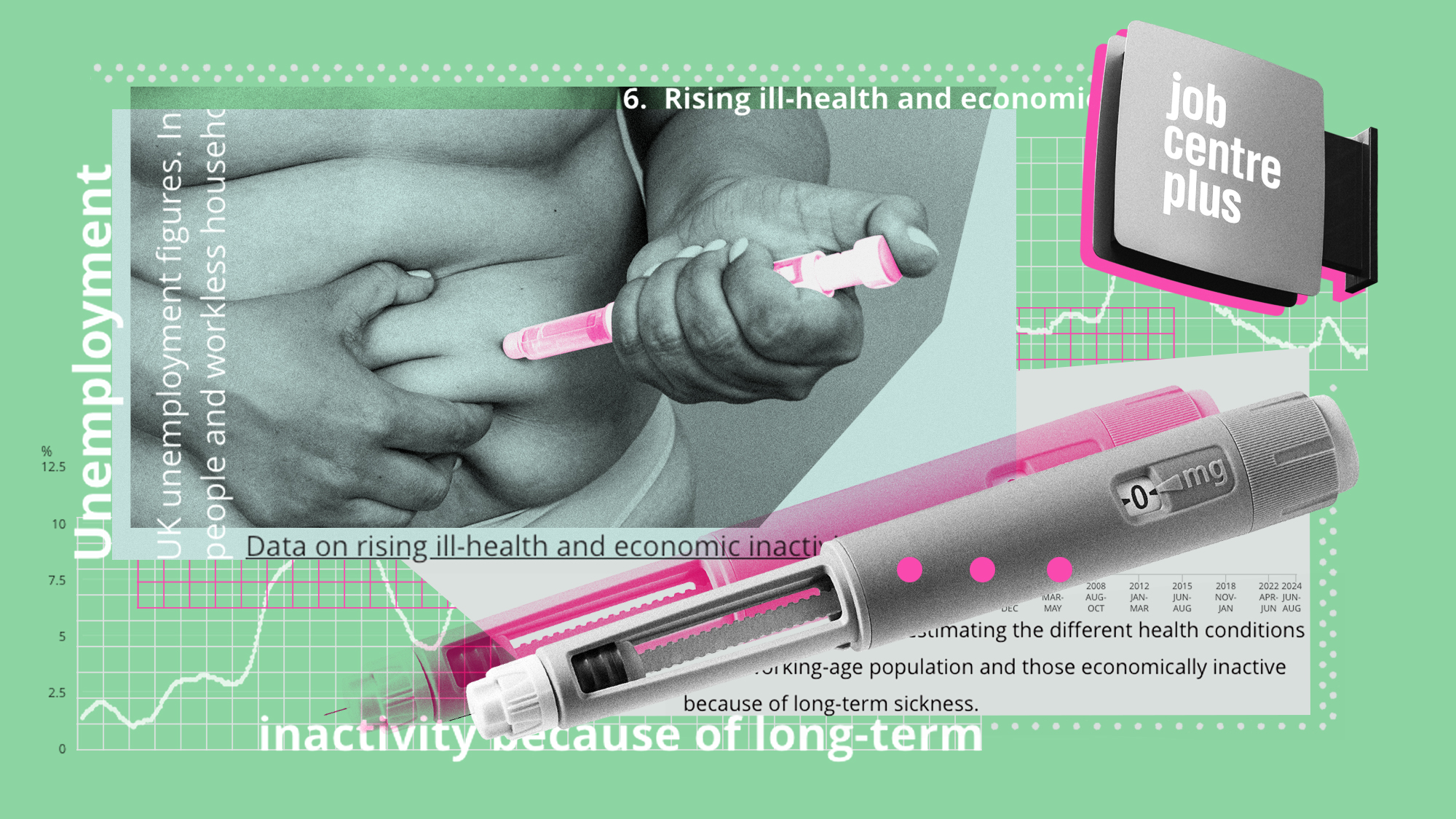Could weight-loss drugs boost the economy?
A five-year trial will examine the use of Mounjaro in getting people back to work

A free daily email with the biggest news stories of the day – and the best features from TheWeek.com
You are now subscribed
Your newsletter sign-up was successful
Weight-loss jabs could be used to help unemployed people get back to work, in a plan under consideration by Wes Streeting. Writing in The Telegraph, the health secretary said obesity was placing a "significant burden" on the NHS and "holding back our economy". The use of weight-loss drugs could be "monumental" in tackling the problem of short- and long-term economic inactivity caused by obesity-related health conditions.
Streeting announced a collaboration with the world's largest pharmaceutical company, Lilly, which will include a five-year trial investigating whether the use of the weight-loss drug tirzepatide helps get people back into employment.
What the commentators said
It's safe to say that to "drug the unemployed with appetite suppressants until they're thin enough to work", wasn't at the top of most voters' wishlists, wrote Will Dunn in The New Statesman. "And yet here we are".
The Week
Escape your echo chamber. Get the facts behind the news, plus analysis from multiple perspectives.

Sign up for The Week's Free Newsletters
From our morning news briefing to a weekly Good News Newsletter, get the best of The Week delivered directly to your inbox.
From our morning news briefing to a weekly Good News Newsletter, get the best of The Week delivered directly to your inbox.
Studies have shown that losing a job can lead to weight gain, he added, but the logic behind the Lilly trial proposes the opposite: that being overweight causes unemployment. Even if that were the case, tackling the "sharp regional inequality in this country" and better regulating unhealthy foods would have more of a "positive impact on economic growth".
Obesity policy specialist Dr Dolly van Tulleken told BBC Radio 4's "Today" programme that the approach raised "serious ethical, financial and efficacy considerations", including the prospect of people being assessed "on their potential economic value" rather than their individual health needs.
The Telegraph's Philip Johnston said there were other problems with the idea. Rather than increasing productivity, Mounjaro – one of the brand names for tirzepatide – left him feeling so sick that he "couldn't go to the office for days".
But Oxford economist Daniel Susskind, writing in The Sunday Times, argued that the rise of weight-loss drugs offered an "immense opportunity" and it was time politicians challenged the idea that they are just a "beauty treatment for a privileged and lucky few".
A free daily email with the biggest news stories of the day – and the best features from TheWeek.com
"We have a potentially blockbuster drug on our hands" with benefits "not only for overweight individuals but for society as a whole".
What next?
Manchester University's Professor Martin Rutter, who is lead investigator for the five-year trial, said his team would be investigating Mounjaro's effectiveness on weight loss and preventing obesity-related conditions such as diabetes. They will also examine its impact on the participants' working lives.
Weight-loss drugs are already prescribed by the NHS for obesity and diabetes, although Sky News said "thousands" of people were unable to access Wegovy because of a slow roll-out by the NHS. According to Freedom of Information requests by the broadcaster, by the end of April, only 800 people out of the 13,500 estimated to be eligible by the Department of Health had been able to start their prescribed treatment.
Speaking to the BBC, Van Tulleken said that there would be "millions" eligible for weight-loss treatment, but that specialist weight-management services could treat only 49,000 patients per year. Drug manufacturers could also struggle to keep up with demand, said the broadcaster, and the NHS has also "tightly restricted" the use of weight-loss drugs. Mounjaro is not yet available on the NHS and officials have warned it "could take years" for it to be rolled out.
Elizabeth Carr-Ellis is a freelance journalist and was previously the UK website's Production Editor. She has also held senior roles at The Scotsman, Sunday Herald and Hello!. As well as her writing, she is the creator and co-founder of the Pausitivity #KnowYourMenopause campaign and has appeared on national and international media discussing women's healthcare.
-
 Local elections 2026: where are they and who is expected to win?
Local elections 2026: where are they and who is expected to win?The Explainer Labour is braced for heavy losses and U-turn on postponing some council elections hasn’t helped the party’s prospects
-
 6 of the world’s most accessible destinations
6 of the world’s most accessible destinationsThe Week Recommends Experience all of Berlin, Singapore and Sydney
-
 How the FCC’s ‘equal time’ rule works
How the FCC’s ‘equal time’ rule worksIn the Spotlight The law is at the heart of the Colbert-CBS conflict
-
 Is the US about to lose its measles elimination status?
Is the US about to lose its measles elimination status?Today's Big Question Cases are skyrocketing
-
 A fentanyl vaccine may be on the horizon
A fentanyl vaccine may be on the horizonUnder the radar Taking a serious jab at the opioid epidemic
-
 Nitazene is quietly increasing opioid deaths
Nitazene is quietly increasing opioid deathsThe explainer The drug is usually consumed accidentally
-
 Obesity drugs: Will Trump’s plan lower costs?
Obesity drugs: Will Trump’s plan lower costs?Feature Even $149 a month, the advertised price for a starting dose of a still-in-development GLP-1 pill on TrumpRx, will be too big a burden for the many Americans ‘struggling to afford groceries’
-
 Is this the end of ultraprocessed foods?
Is this the end of ultraprocessed foods?Today's Big Question California law and the MAHA movement are on the same track
-
 Can TrumpRx really lower drug prices?
Can TrumpRx really lower drug prices?Today’s Big Question Pfizer’s deal with Trump sent drugmaker stocks higher
-
 The UK’s opioid crisis: why the stats don’t add up
The UK’s opioid crisis: why the stats don’t add upThe Explainer A new report has revealed that the UK’s total of opioid-related deaths could be much greater than official figures show
-
 The battle of the weight-loss drugs
The battle of the weight-loss drugsTalking Point Can Novo Nordisk and Eli Lilly regain their former stock market glory? A lot is riding on next year's pills